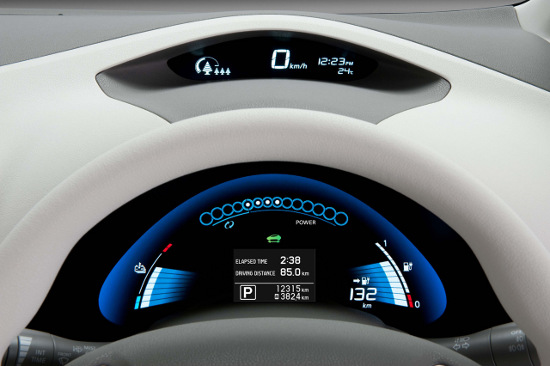Regenerative braking - maybe change isn't always so hard
A few months back I had a piece over on Fistful of Talent called 'Range and Change Anxiety: Electric Cars are More Like Your Company Than You Think , that tried to make a connection between range anxiety, one of the primary psychological barriers that drivers have toward more widespread adoption of Electric Vehicles, (EVs), and change efforts that so often prove tremendously difficult in organizations. The take - that leaders and systems implementors need to take into account both real barriers to change, (cost, technical complexity), and perceived or even imaginary barriers (range anxiety, the fear that the driver will be stranded somewhere even though almost all trips are far too short to actually drain the EV battery).
The less than ground breaking conclusion - that change is really hard, and we make it harder by creating issues, problems, barriers, reasons to say no that sometimes exceed the often practical barriers that most projects also face. Seems kind of depressing, no? I mean if change efforts inside organizations are going to be stymied by any amount of imagined barriers then why bother? Focus on making small, incremental, and low-cost, low-risk changes to systems, processes, technologies and at least you'll have a reasonable chance for success. Then when it comes to have that annual performance review with the boss you'll at least be able to point to something tangible.
Well maybe not all is lost. As a kind of follow-up to the Electric Vehicle adoption story this week Fast Company ran a piece called 'It Turns Out Electric Vehicles Are So Fun To Drive, You Won't Want To Go Back', that reported on the results of a study that provided test EVs to 450 drivers in the United States. After becoming accustomed to the unique and different traits of EVs (like 'regenerative braking', the way some EVs can harness and re-purpose the heat energy from the vehicle's brakes), almost all the driver's had managed to put aside their resistance to EVs. From the Fast Company article:
But by the end of the trial, the drivers, a mix of high-performance junkies, environmental enthusiasts, and technology pioneers, were hooked: 100% of the survey respondents agreed "electric vehicles are suitable for daily use," and two-thirds were more interested in buying an electric car. Only 9% said they were less interested. "Most households," even those with several other cars, reported the study, "preferred to drive the Mini E," admiring its clean, fun, and efficient attributes.
So once the drivers had the opportunity to actually use the EVs and see first hand how the new technology could not only be more cost and energy efficient, but also improve the driving experience, then at least according to this study, almost all of them were hooked.
Some simple takeaways for organiational leaders and change projects?
Don't discount people's imaginary barriers to change, but the best way to combat them might be to allow more full participation in early phases of change programs, whether it is in planning, early testing, or simply forming communication plans. The best way for someone to truly believe that their fears are unfounded is to put them to the test, in a hands-on manner if possible.
And finally, if you are 'selling' your change based on some attribute or feature that your community does not care about, or is not directly applicable to making their live's better, the old what's in it for me gimmick, then you'd better hope as in the case of the EV tests, the community finds some other benefits you didn't even think were important.
I'll close wikth the last line from the study write-up:
"The general public thinks that electric cars are all golf carts: slow and boring," she said. "It's not until they drive one, they hear one, that they open their minds that these cars be fun to drive."
Substiute 'electric cars' for whatever change project you are stuggling with and see what happens.
Have a great weekend!

 Steve
Steve
Reader Comments